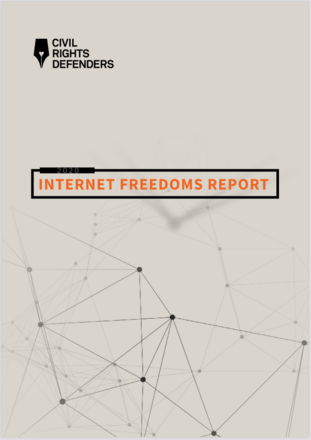
A specially-designed summary of the report has been produced and can be accessed in: English, Serbian, Bosnian and Albanian.
The study gives some final recommendations, such as:
• Private and state actors should discontinue exerting pressures on online media, journalists and internet users. There is a visible trend of a range of verbal attacks, threats, smear campaigns and other forms of pressures which hinder the free flow of information online, which should be investigated with priority and dealt with in accordance with relevant laws.
• State institutions need to encourage a broad multi-stakeholder public debate on all legislative instruments (laws, bylaws etc.) concerning the respect for human rights on the internet and in relation to technology. As there are numerous challenges ahead, such as the possible use of artificial intelligence (AI) for the purposes of law enforcement, a wide social debate with civil society and expert community is necessary.
• States should ensure that media and information literacy programs are carried out on a national scale, especially among youth and in cooperation with educational institutions. Also, there is a need for media and literacy trainings for teachers and other educators.
• Further efforts are needed to protect net neutrality in the examined countries, i.e. in line with EU net neutrality rules, as it is crucial for the healthy development of the digital environment and provision of all digital services under the same standards.
• Taking into account the start of application of the EU General Data Protection Regulation (GDPR) in May 2018, it is needed to align the legal framework for personal data protection with the new EU standards. Serbia is the first country to adopt and start implementing the new Law on Personal Data Protection, which is based on GDPR, but still needs improvement. BiH, Albania and Kosovo should follow the example of Serbia and start reforms of personal data protection legislation as soon as possible.
• In terms of surveillance of electronic communications and access to retain communications’ metadata, it needs to be done in accordance with the constitutional guarantees of the secrecy of communications, privacy and the protection of personal data, as well as with international human rights standards such as Article 8 of the European Convention on Human Rights. Also, the jurisprudence of the European Court of Human Rights in these matters needs to be taken into account. Although the countries in question are not EU Member States, all of them are in different stages of joining the EU and should therefore also consult the jurisprudence of the Court of Justice of the EU.
Tags: Digital rights Digital safety Western BalkansThe content of this article can be used according to the terms of Creative Commons: Attribution-NonCommercial 4.0 International (CC BY-NC 4.0) . To do so use the the wording "this article was originally published on the Resource Centre on Media Freedom in Europe" including a direct active link to the original article page.

